Sleep Apnea – DuPont, WA
Enjoy the Quality Rest You Deserve with Sleep Apnea Therapy
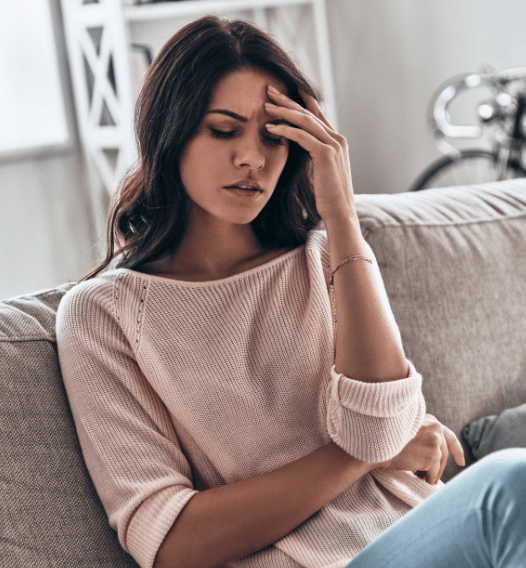
If you have been diagnosed with chronic snoring and/or sleep apnea, turn to DuPont Family Dentistry for the effective therapy you need to achieve a full night of uninterrupted sleep. Our doctors can provide a customized oral appliance for patients who cannot use a traditional CPAP machine. Please contact our dental office location today to schedule a visit to explore options for treating sleep apnea in DuPont, WA.
Why Choose DuPont Family Dentistry for Sleep Apnea?
- Comfortable Alternative to CPAP
- Highly Trained Dental Team
- Early Appointments Available
What is Sleep Apnea?
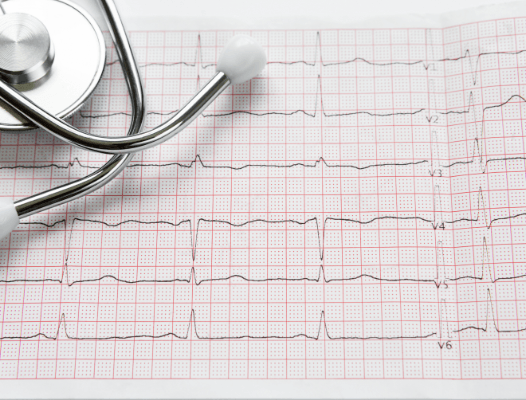
Oral appliance therapy can be used to treat OSA (obstructive sleep apnea) which occurs when the airway becomes obstructed as patients rest. This dramatic reduction in oxygen forces the brain to awaken the person so that they can readjust and restore healthy breathing. While these instances are likely to only last for seconds at a time, they can occur several times each night. As a result, patients are unable to achieve the deep sleep they need to feel fully rested and ready for the day ahead. Common symptoms associated with sleep apnea include constant exhaustion, excessively loud snoring, painful morning headaches, and dry/sore throat.
If you have been diagnosed with mild to moderate obstructive sleep apnea, a custom-made oral appliance may work wonders when it comes to improving the quality of your sleep. While CPAP treatment is noisy and uncomfortable, these devices are simple to use, comfortable to wear and easy to transport. When inside the mouth, they reposition the jaw and/or tongue so that airway blockage is effectively prevented.
Sleep Apnea Symptoms
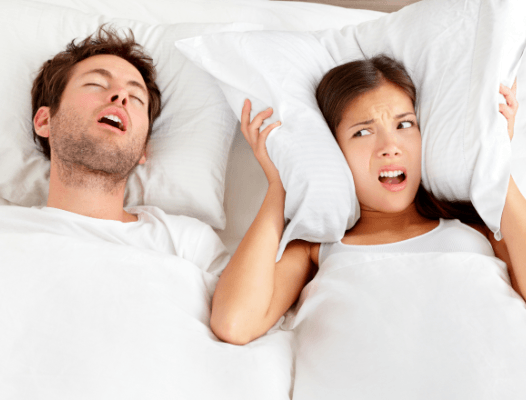
It is not always easy to identify sleep apnea, especially if you do not have someone who can alert you to possible snoring or ceased breathing throughout the night. The good news is that there are other ways to tell if sleep apnea may be what you are experiencing. Some of the symptoms include:
- Chronic snoring
- Sleep deprivation
- Difficulty trying to concentrate
- Depression
- Irritability
Sleep Apnea Treatment
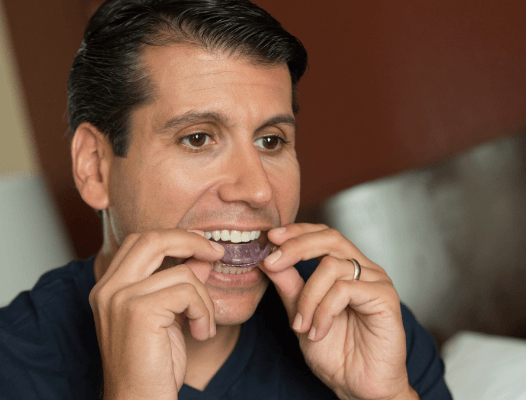
There are a multitude of treatment options available when it comes to sleep apnea; however, more and more dentists are turning to oral appliance therapy. Why? The reason is that these small, compact devices make it possible for patients to achieve a more comfortable, restful night’s sleep without having to maneuver large equipment.
Oral appliances move the jaw slightly forward, allowing the airway to remain open throughout the night while asleep. Not only is it easy to use, but it is easy to travel with should you find yourself preparing for an overnight trip.
Depending on your individual case, oral appliance therapy may or may not be the right choice for you. After reviewing your diagnosis and determining the severity of your sleep apnea, traditional CPAP therapy or various lifestyle changes (i.e., a change in eating habits, incorporating exercise, quit smoking and/or drinking) might be recommended.
Understanding the Cost of Sleep Apnea Treatment
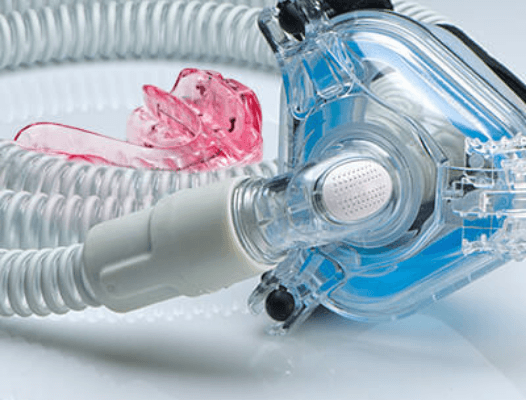
The cost of sleep apnea treatment can depend on a number of factors, including whether or not you have already received your sleep study and diagnosis, or if you need to be referred out to have that done before you can receive treatment. Our team will help you navigate these details during your initial consultation. We work with local experts to make your journey towards achieving peaceful rest easier and faster.
Does Dental Insurance Cover the Cost of Sleep Apnea Treatment?
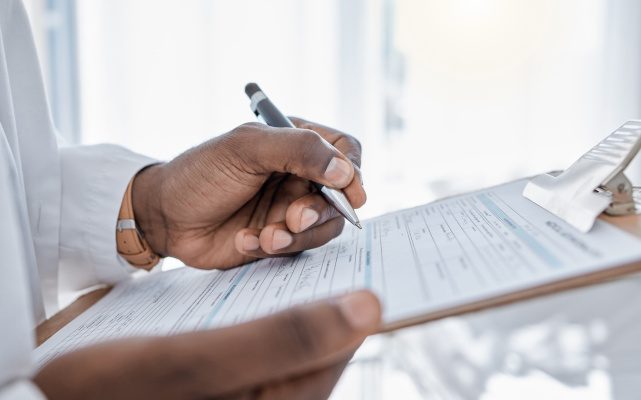
When it comes to paying for your sleep apnea treatment, it will be filed under medical insurance, not dental. The reason is that oral appliances, although a dental device, are technically considered a medical treatment option and are designed to treat a medical issue. In order to find out how much you will be expected to pay, if any, for your therapy, you will need to contact your medical insurance company.
Factors That Can Affect the Cost of Treatment
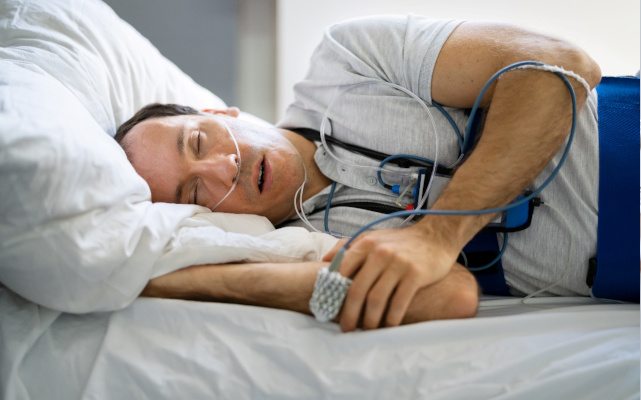
There are a couple of different details that will determine the overall price of sleep apnea treatment in DuPont. These include:
- Whether You Have Already Received a Diagnosis: If you have already received your diagnosis, you won’t need to worry about paying for a sleep study or consulting with a sleep physician. Your next step will just be treating your sleep apnea!
- The Type of Treatment: There are multiple options for treating sleep apnea, each with different price ranges. At DuPont Family Dentistry, we only offer oral appliance therapy, which can be similar or comparable in price to CPAP treatment, depending on your medical benefits.
- Insurance Coverage: Our practice doesn’t accept medical insurance, but we can help assist you in filling out your claim so you can maximize your reimbursement.
Ways to Make Sleep Apnea Treatment More Affordable
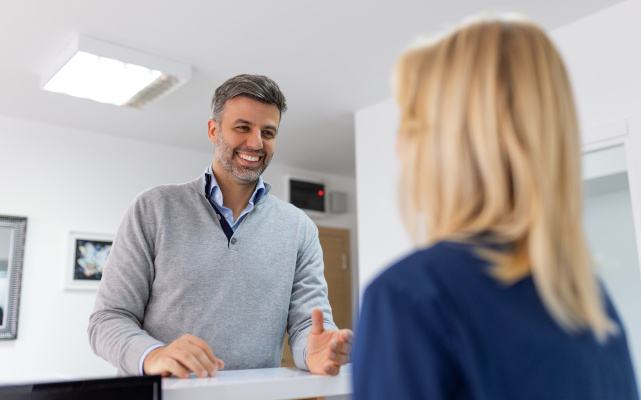
If you’re uninsured or your medical insurance benefits don’t cover sleep apnea treatment, we also offer financing through CareCredit. Simply apply through their website, find out if you’re approved, and select the length of your payment plan (usually 12 or 24 months). In many cases, patients who are approved for CareCredit financing have little-to-no interest plans, making it incredibly easy to pay off!
Sleep Apnea FAQs
How soon will I notice improvements after starting sleep apnea treatment?
While it may feel a little strange to sleep with an oral appliance in your mouth for the first couple of nights, you’ll get used to it quickly and notice nearly immediate results. Many patients remark that the first night of sleep with their appliance is like night and day from the night before. The best way to know for sure if your treatment is working effectively for you is to receive testing from a sleep physician following six months to a year of OAT.
Do I need a sleep study before I can undergo oral appliance therapy?
Yes. Once you’ve received a sleep study and the results have been read by a qualified sleep physician who has diagnosed you with obstructive sleep apnea, you can begin looking into your treatment options. All our team needs to get you started is that diagnosis, so contact us so we can get everything set up for you!
For patients who are looking to simply address their snoring with a snore guard, no sleep study is needed.
Can I undergo oral appliance therapy for sleep apnea if I grind my teeth?
Even if you have bruxism, our oral appliances will still work great for you. They’re incredibly durable, so they can withstand the force of teeth grinding at night and even double as protection to keep your molars from grinding against each other.
How should I clean my sleep apnea oral appliance?
As you sleep, your oral appliance will become coated with saliva and bacteria, which is why it’s important to rinse it after every time you take it out and thoroughly clean it each day. This will prevent issues like cavities, gum disease, and oral infections from occurring. You can clean your appliance with clear soap, water, and a soft-bristled toothbrush or denture cleaner.
Is there an alternative to CPAP therapy?
Many patients come to us because they’re CPAP-intolerant, which means that, while the CPAP device may be keeping their airway open, they still can’t sleep. This can be due to the noise it makes or because wearing the face mask is uncomfortable. A great alternative for these patients is an oral appliance. These are custom-designed mouthguard-like devices that you wear as you sleep, helping keep your airway unobstructed as you rest.
